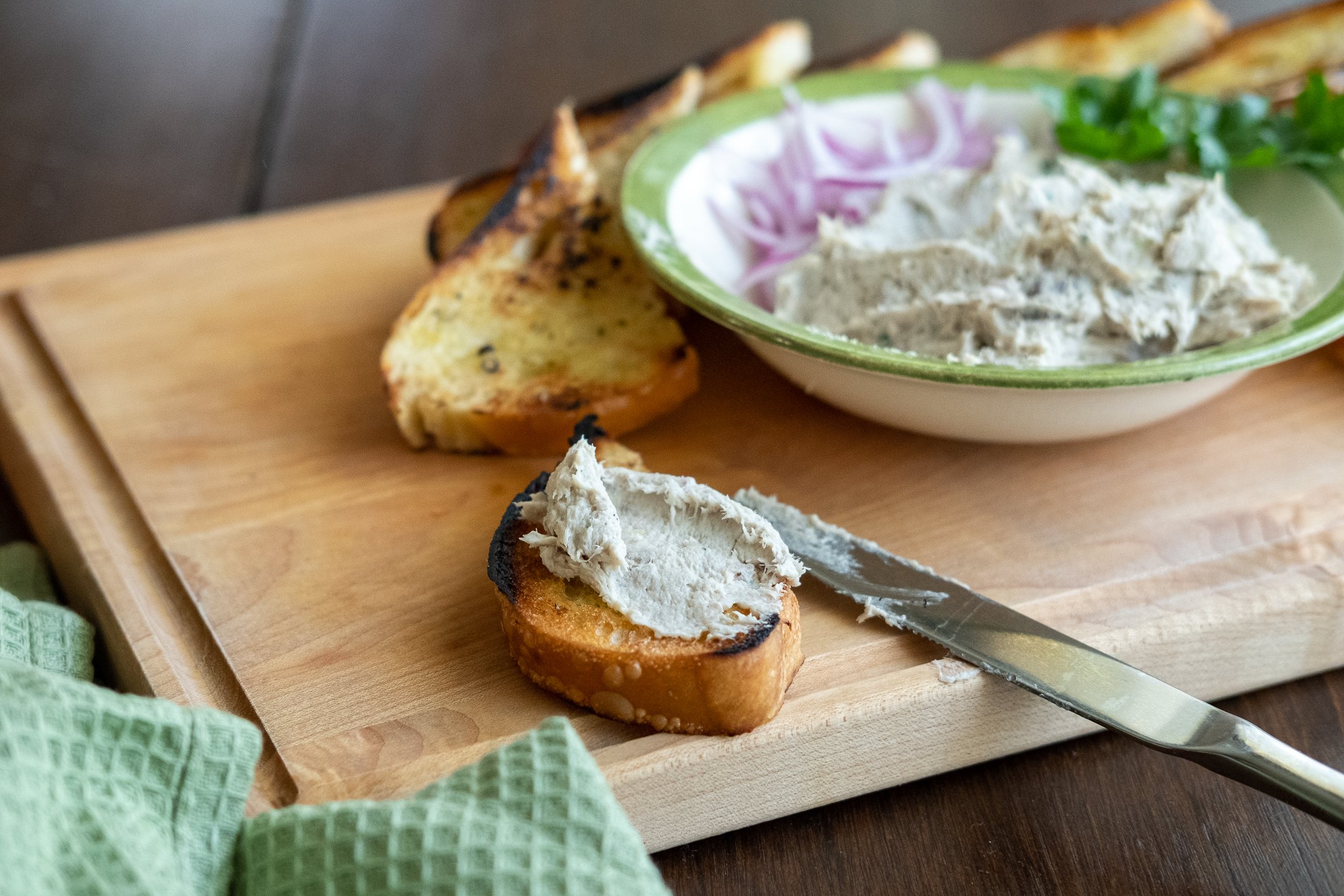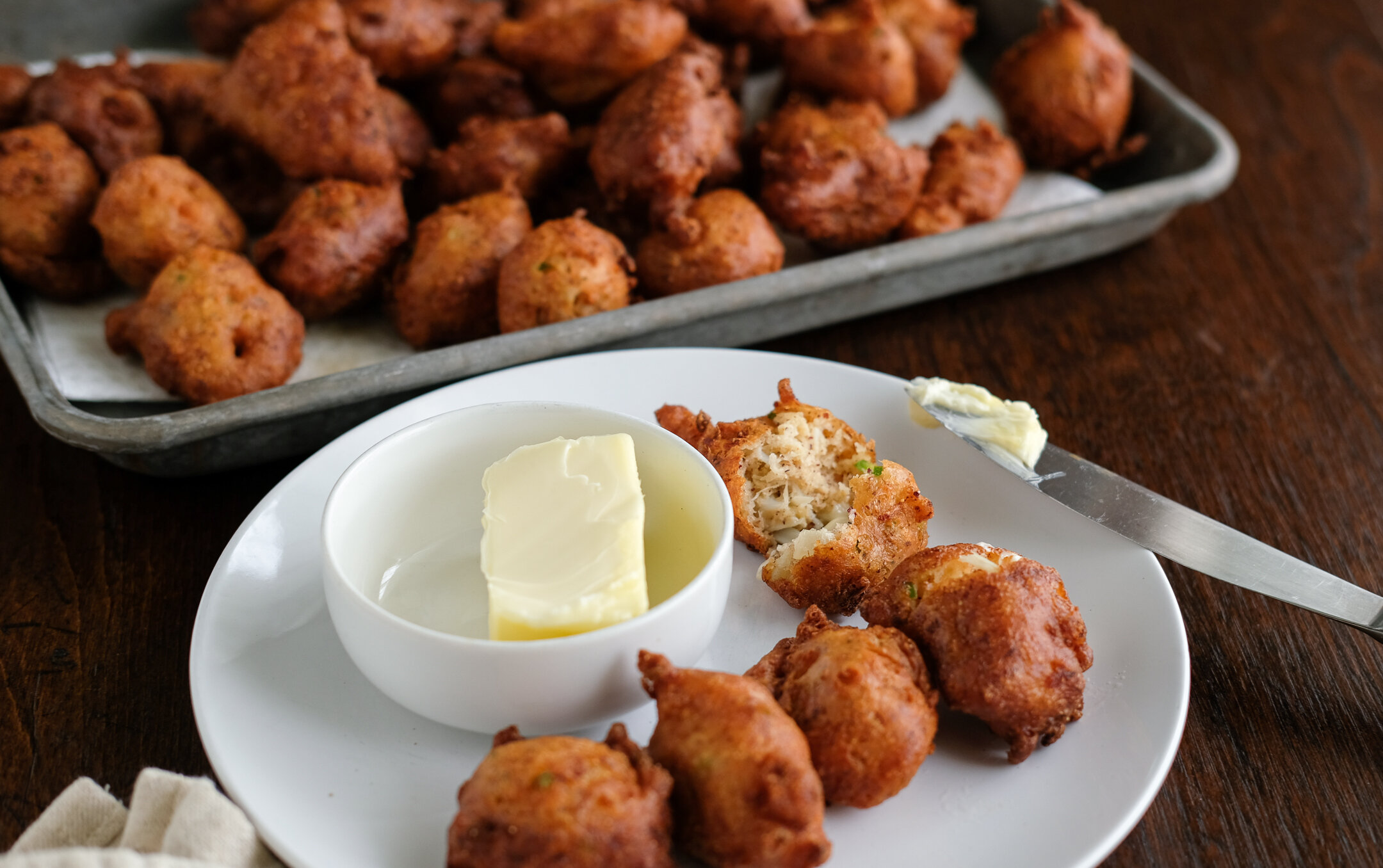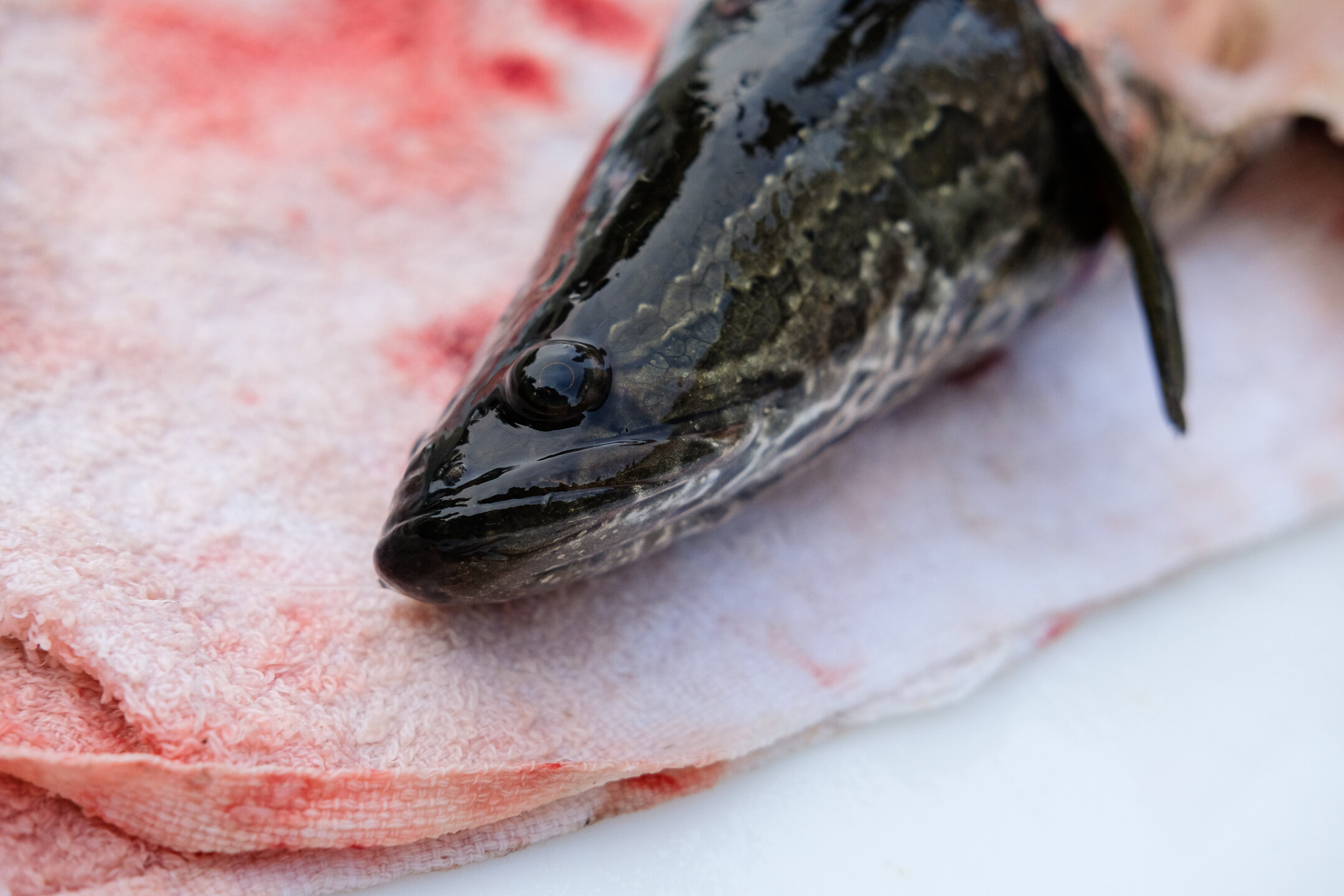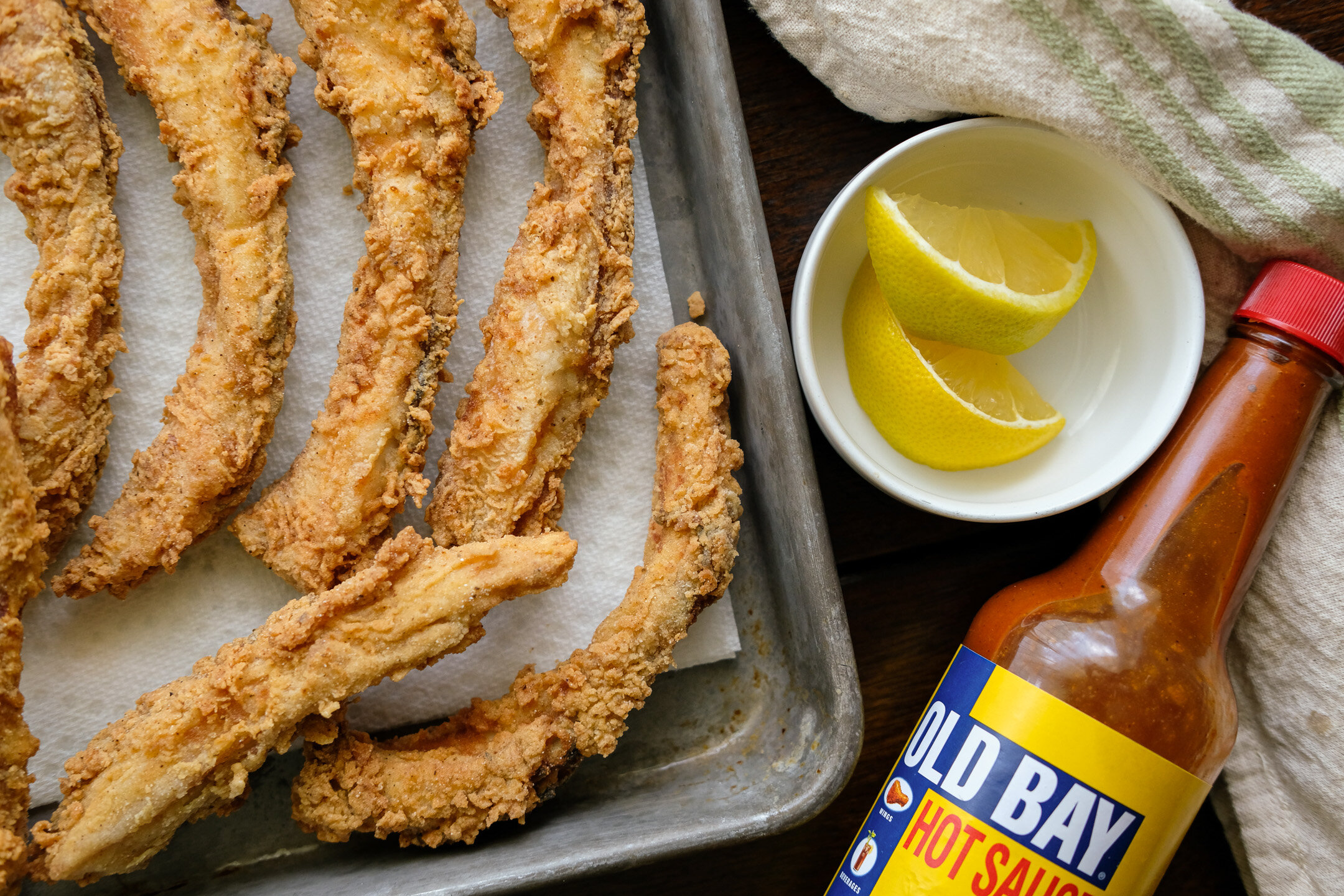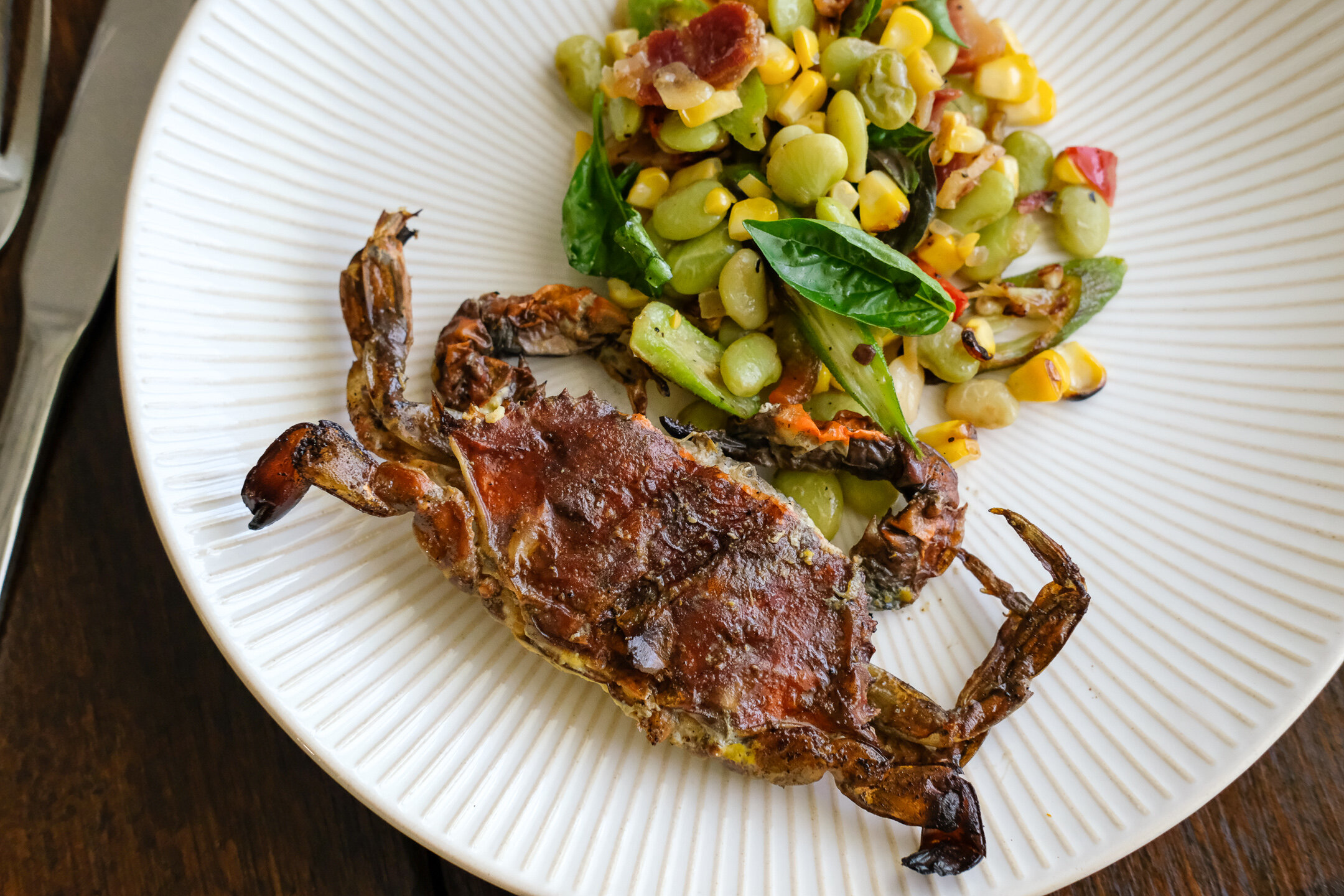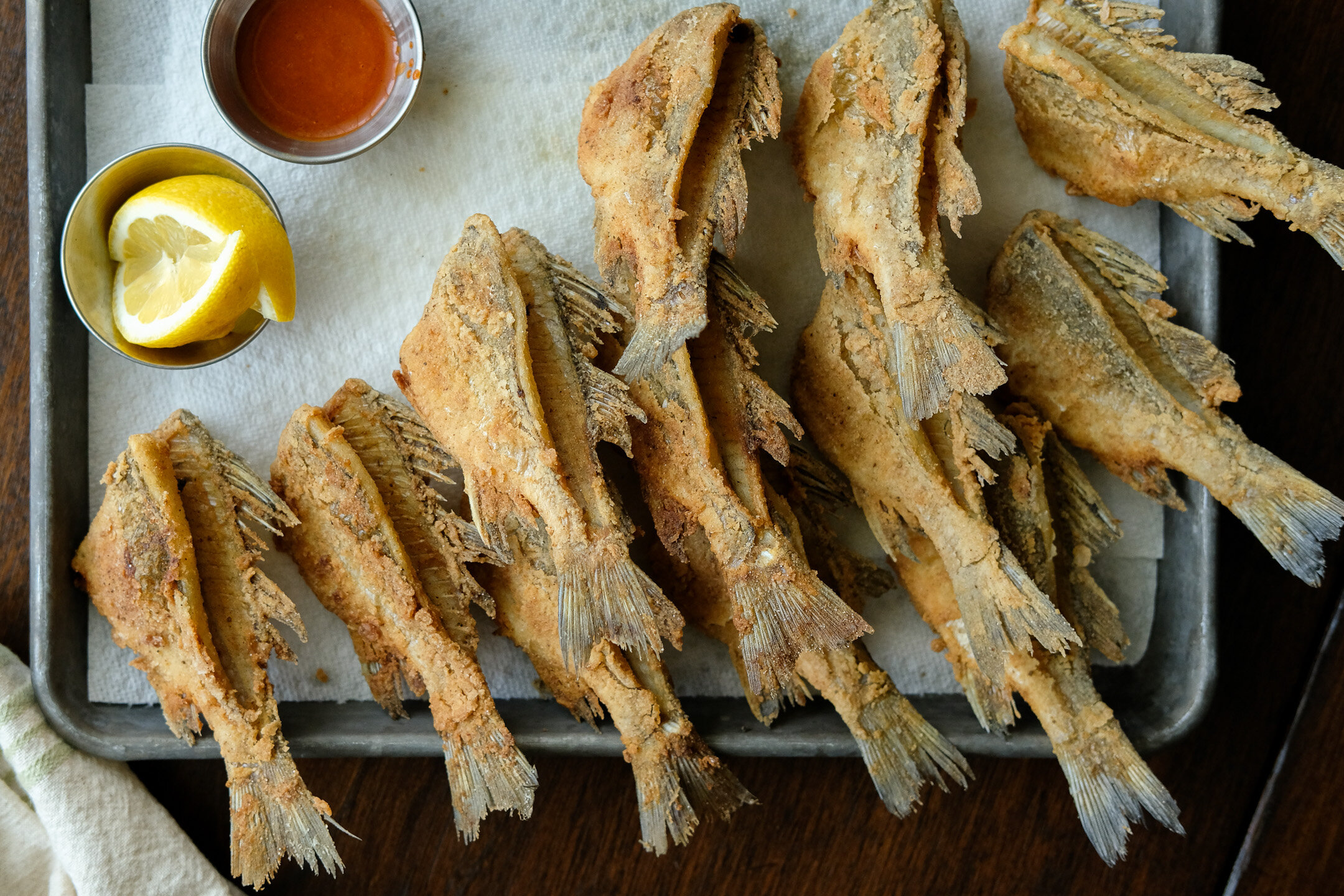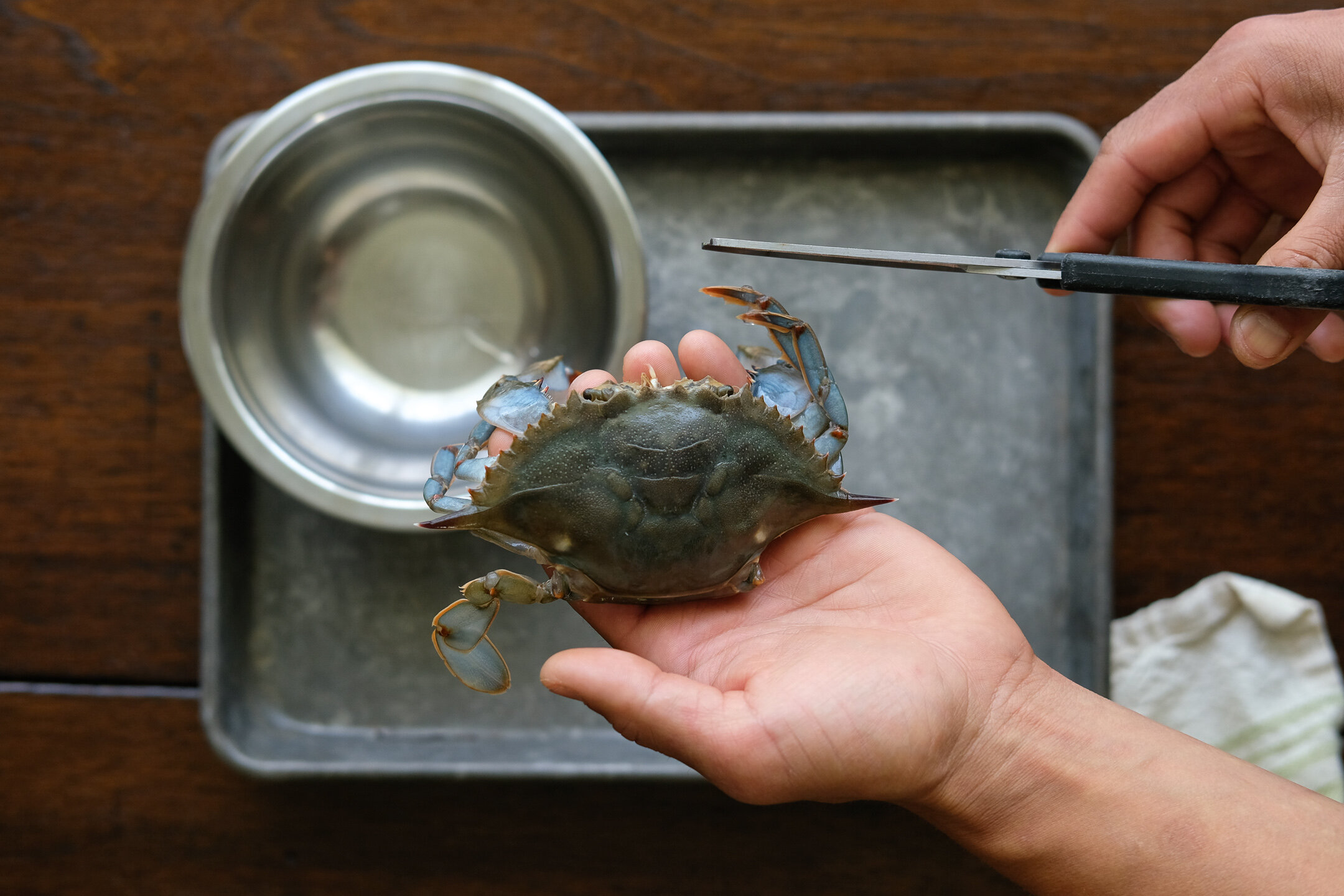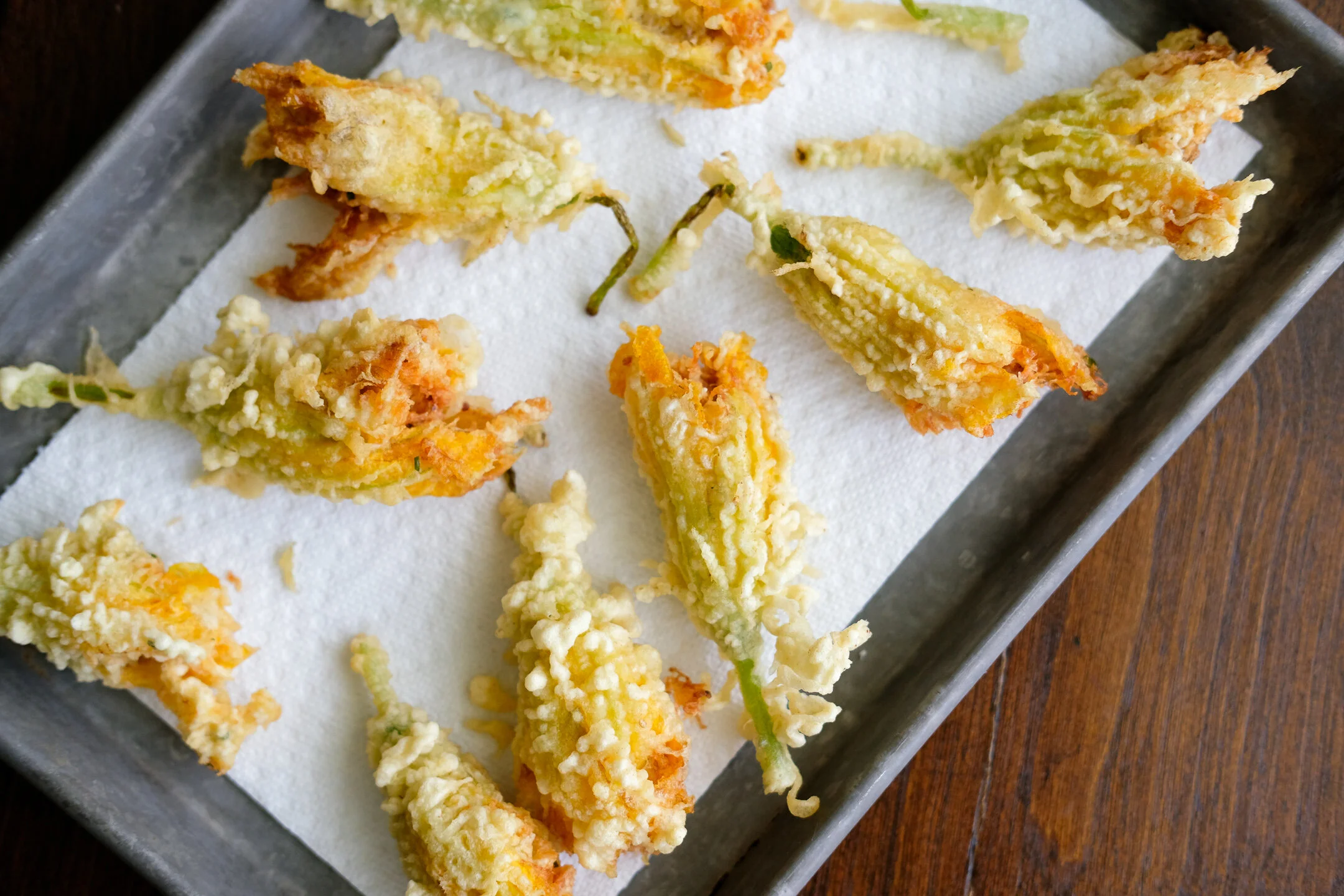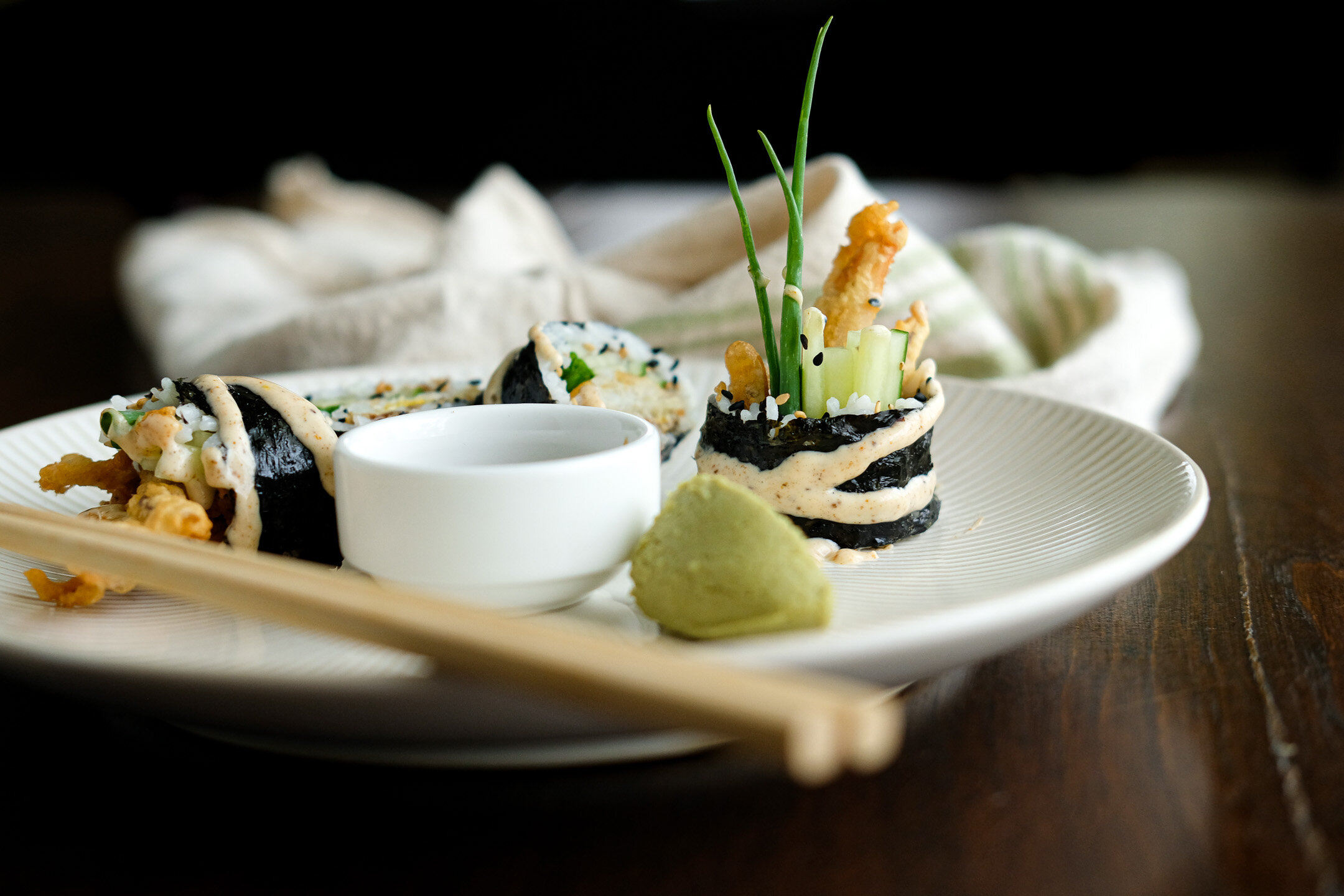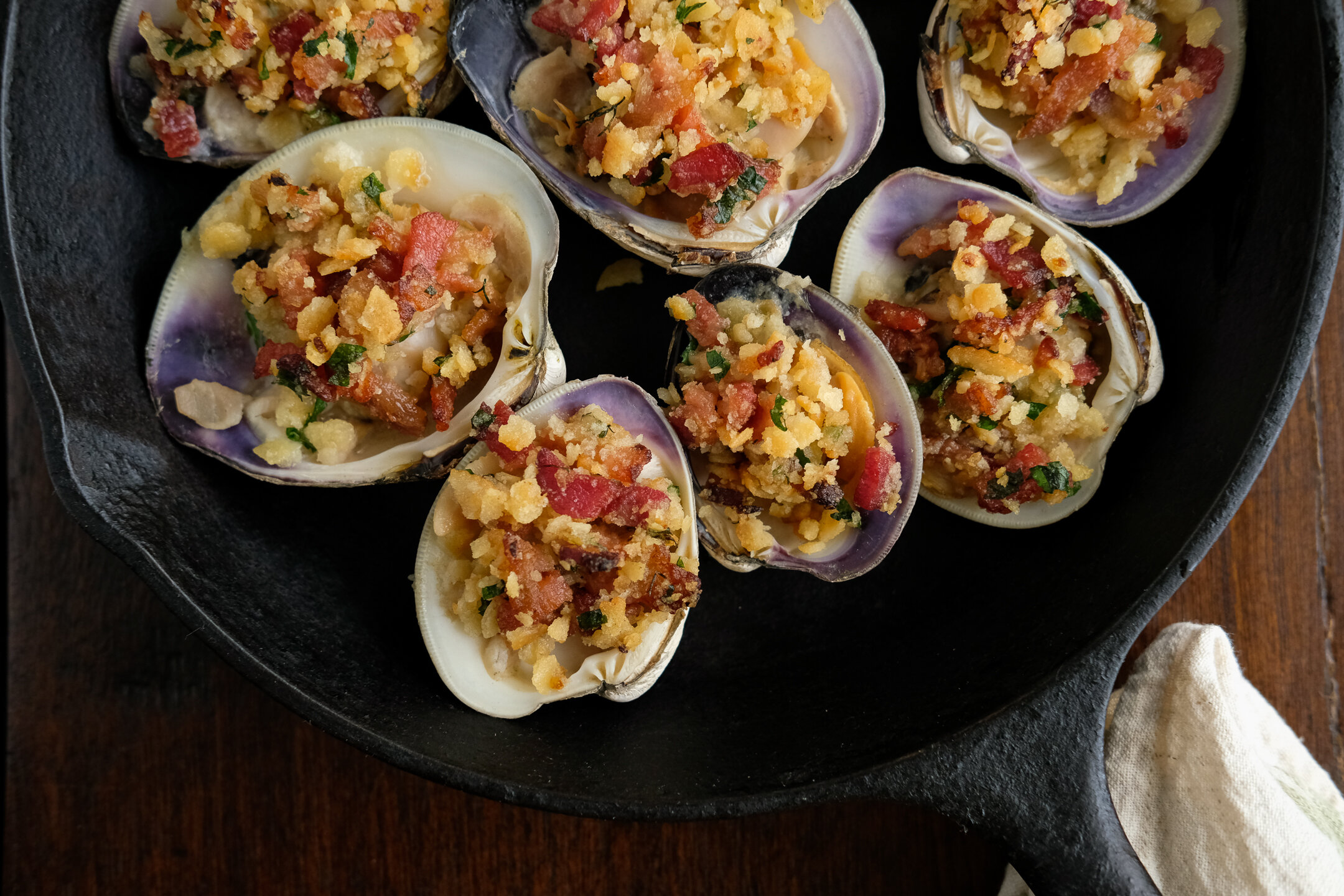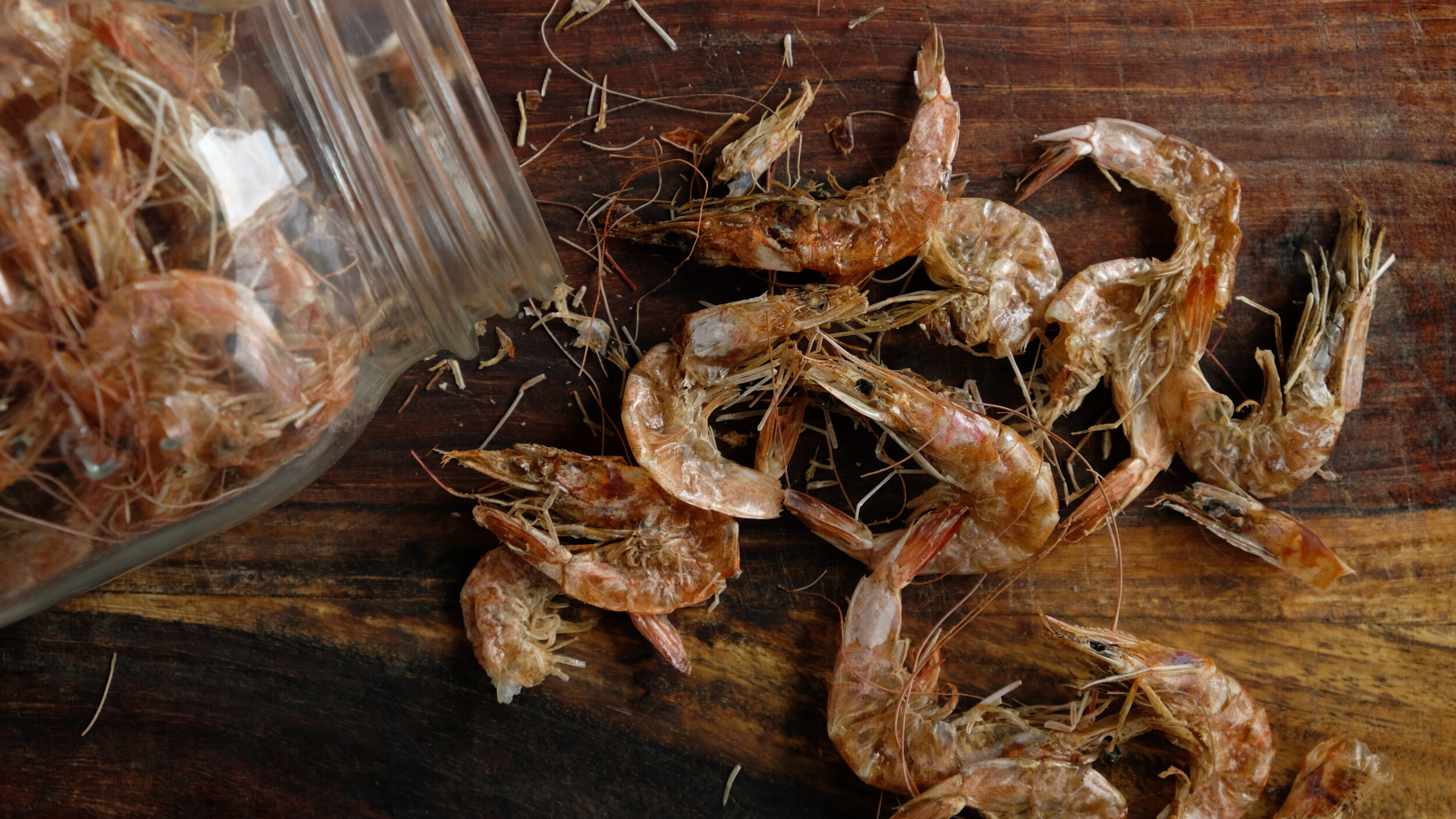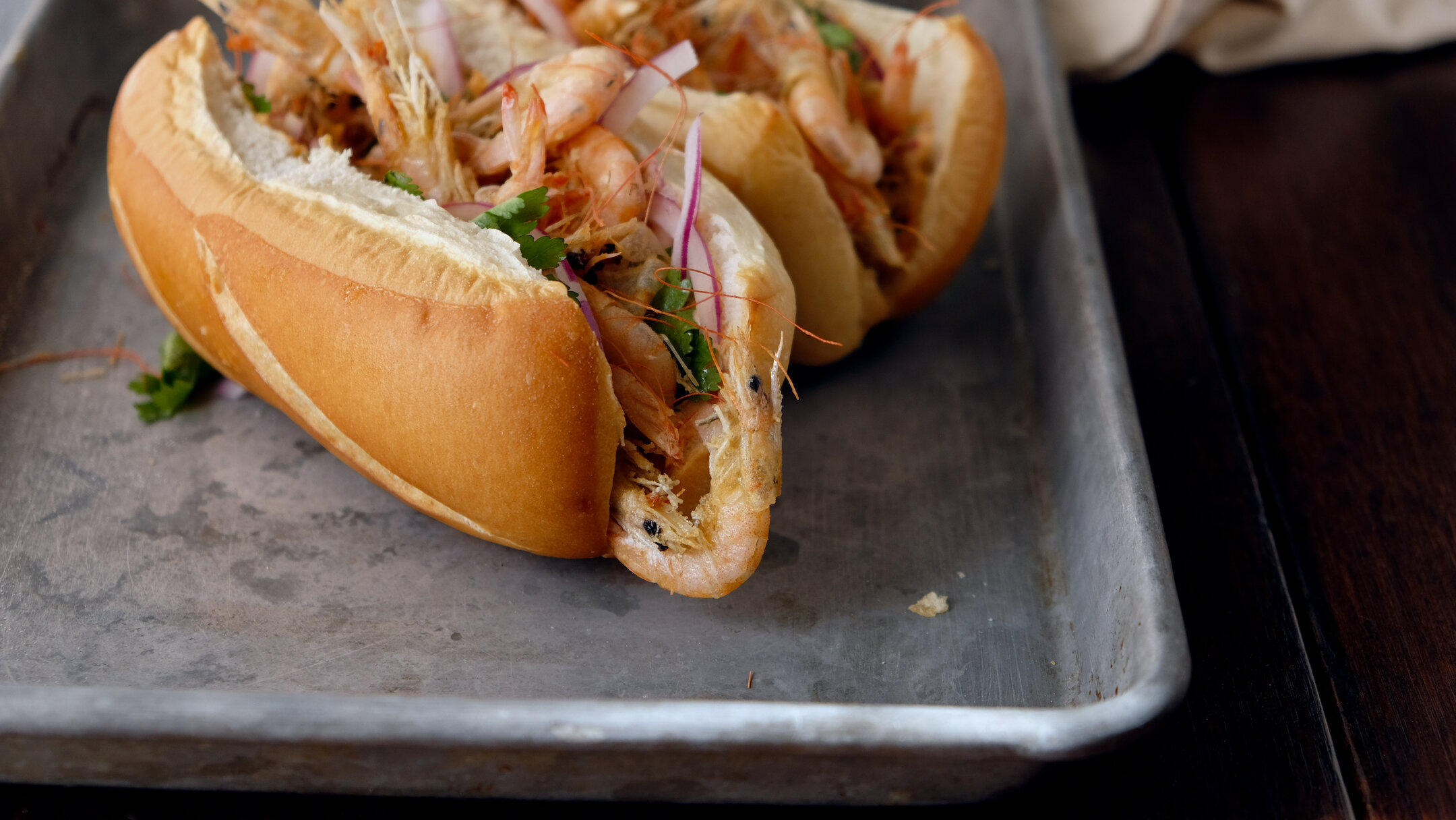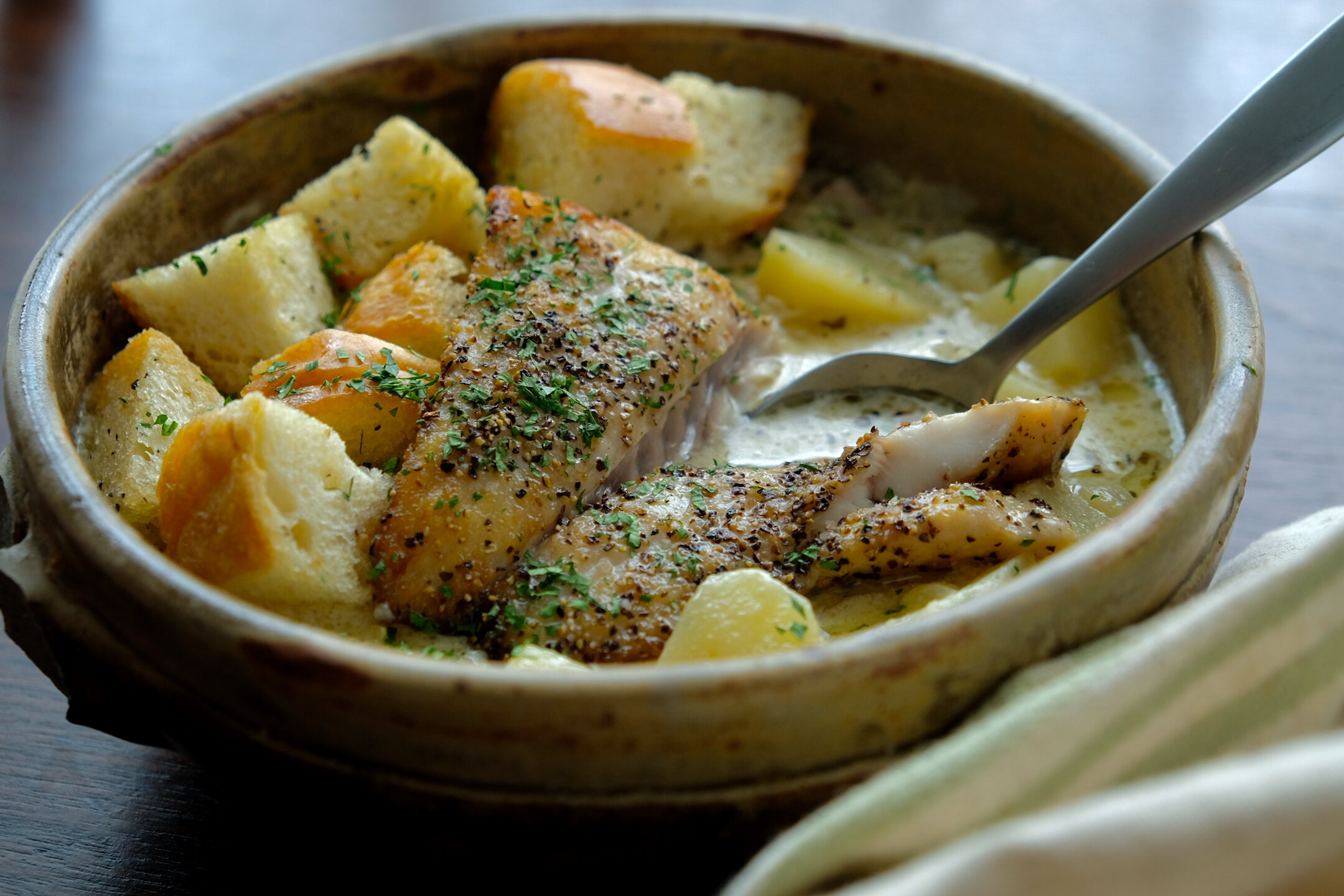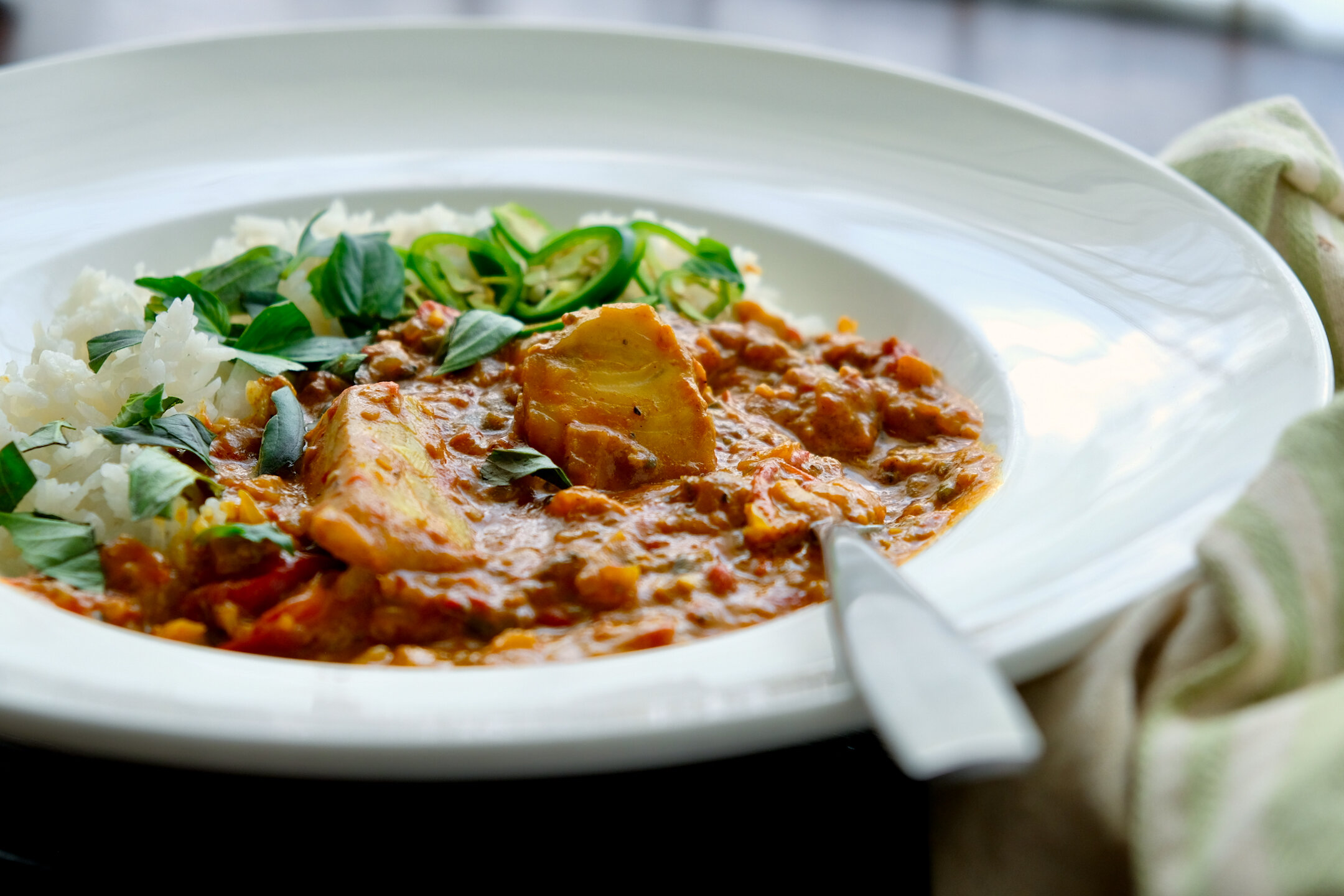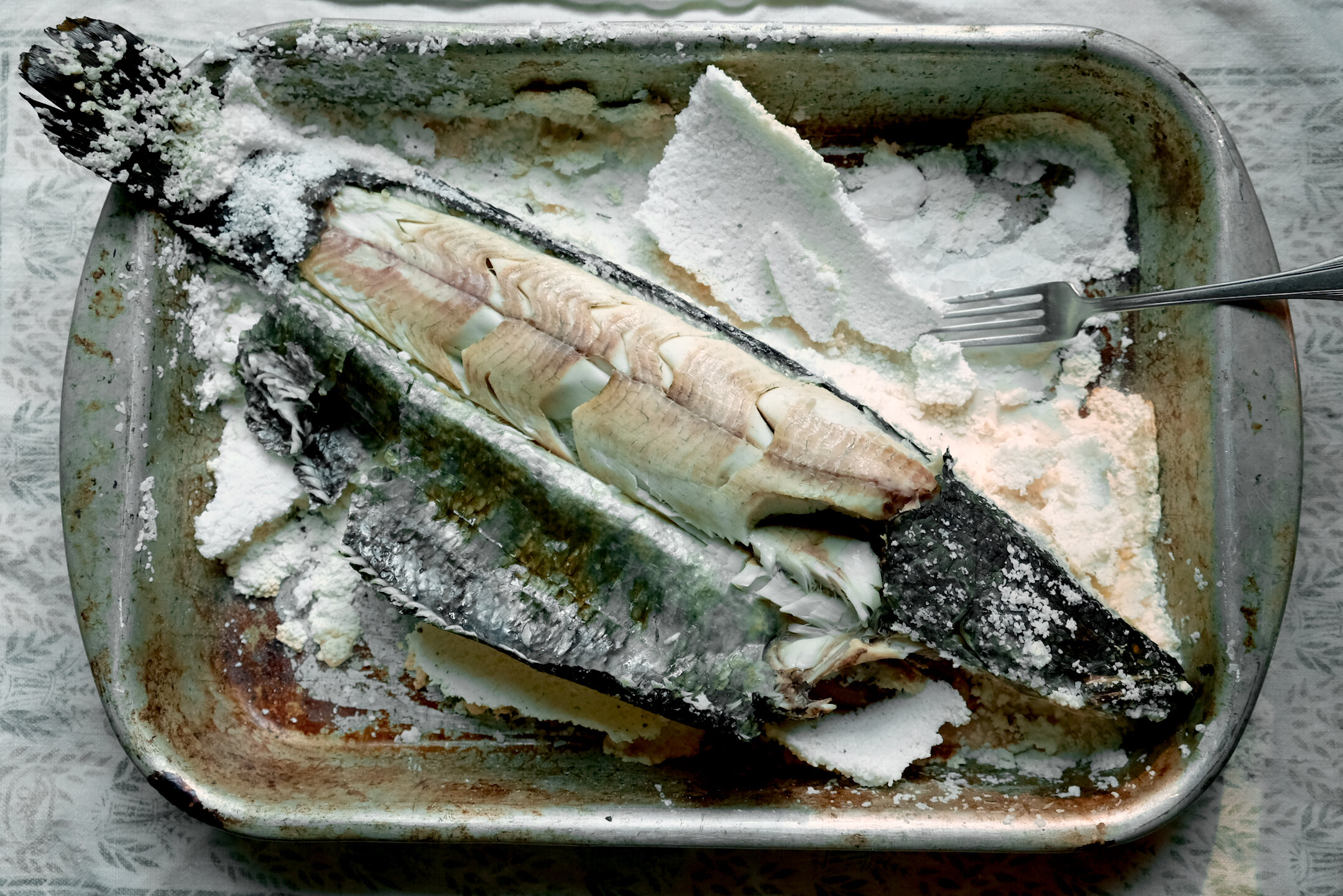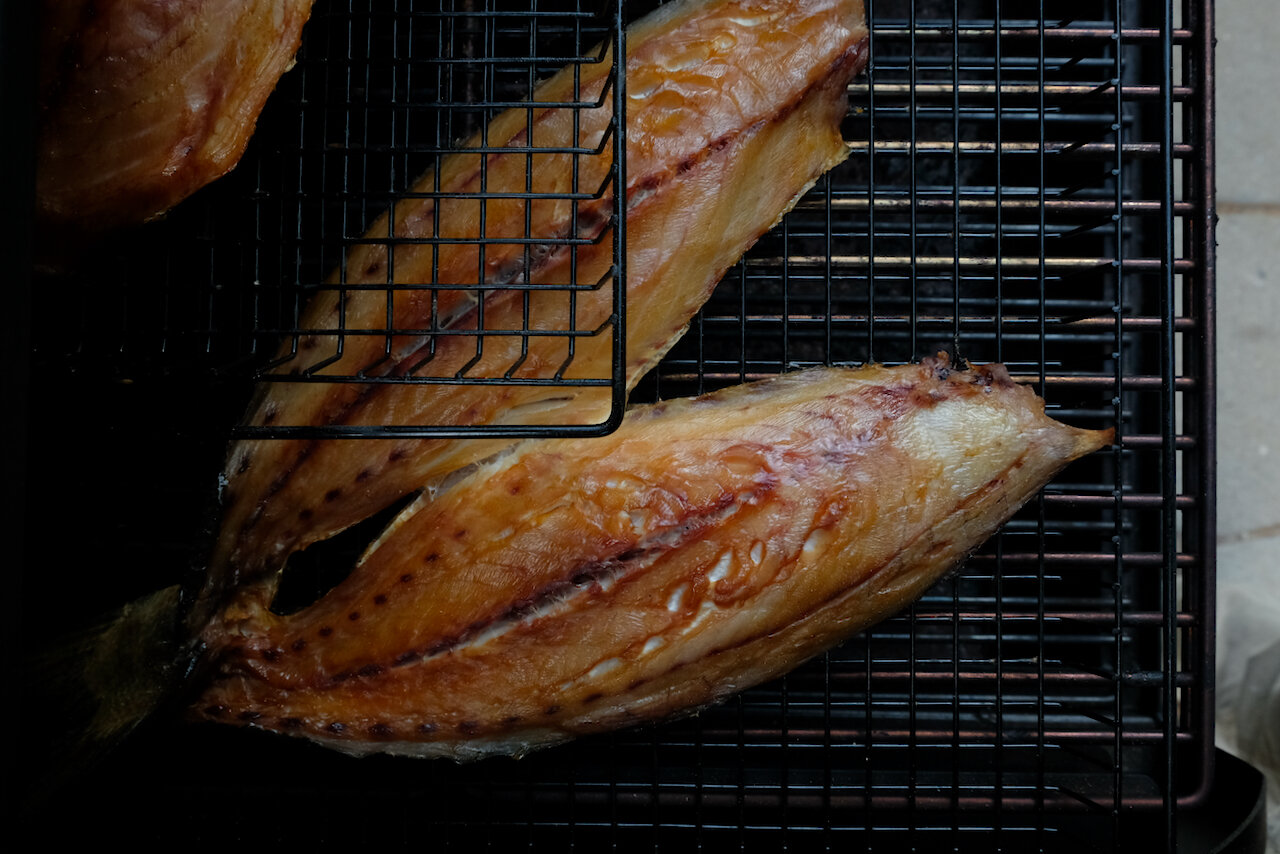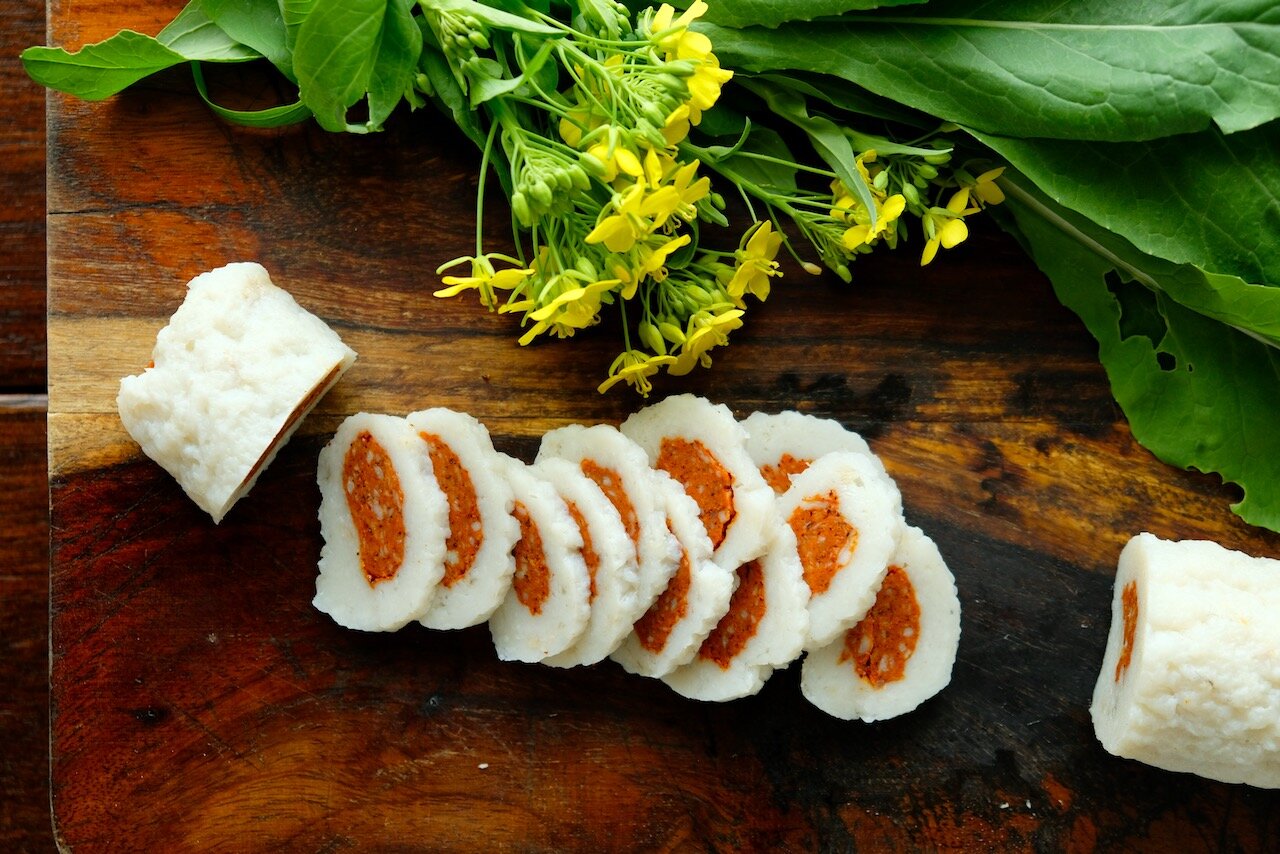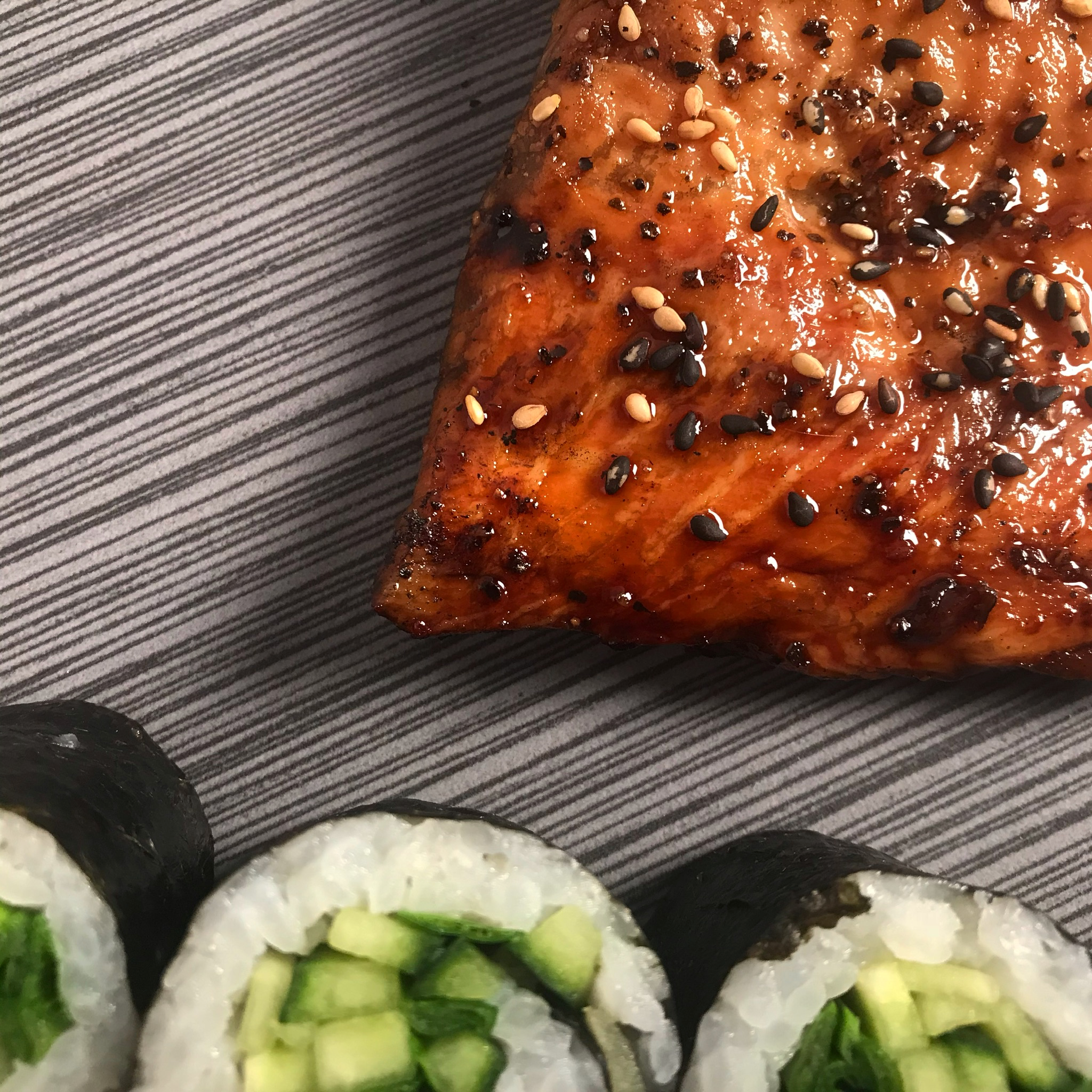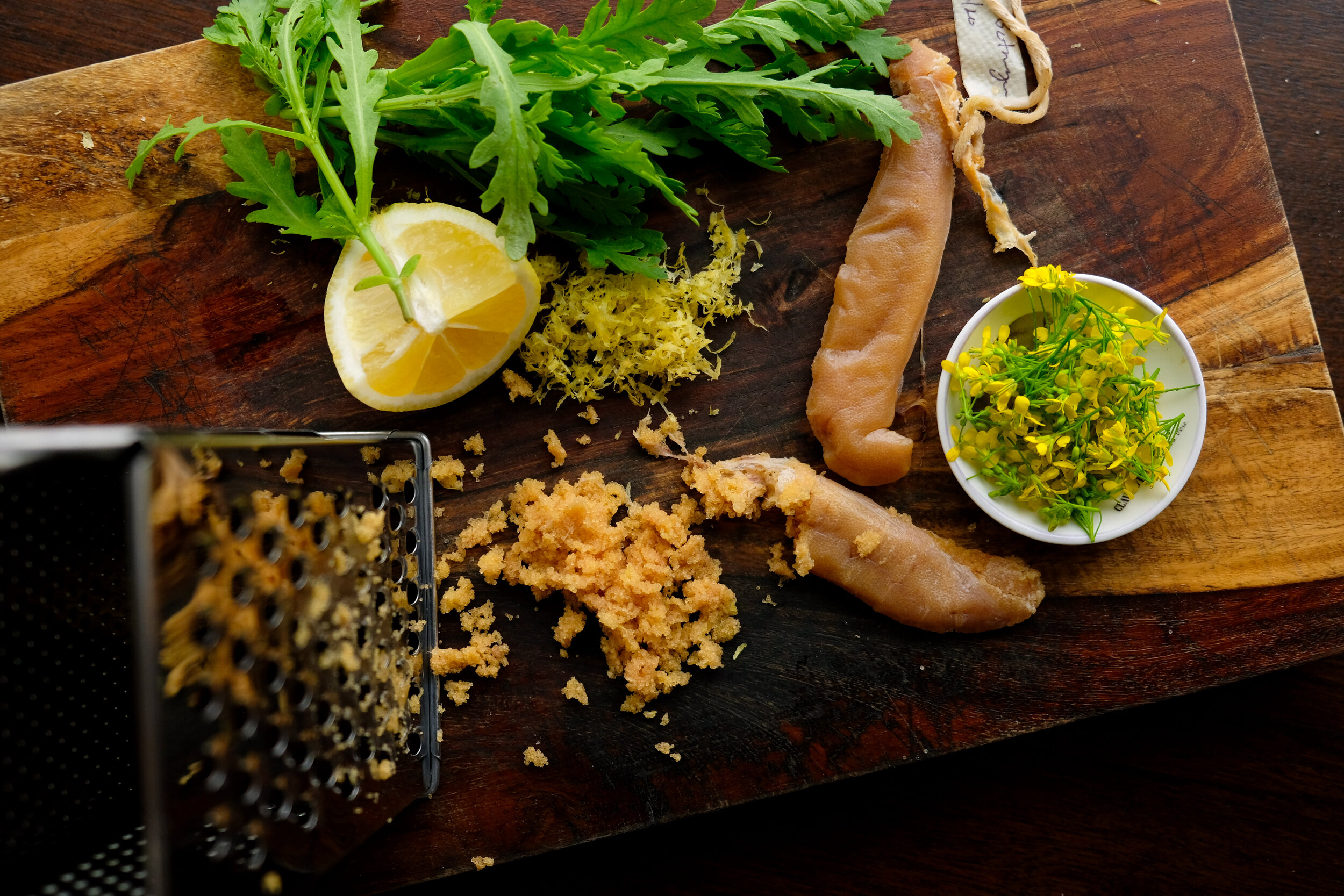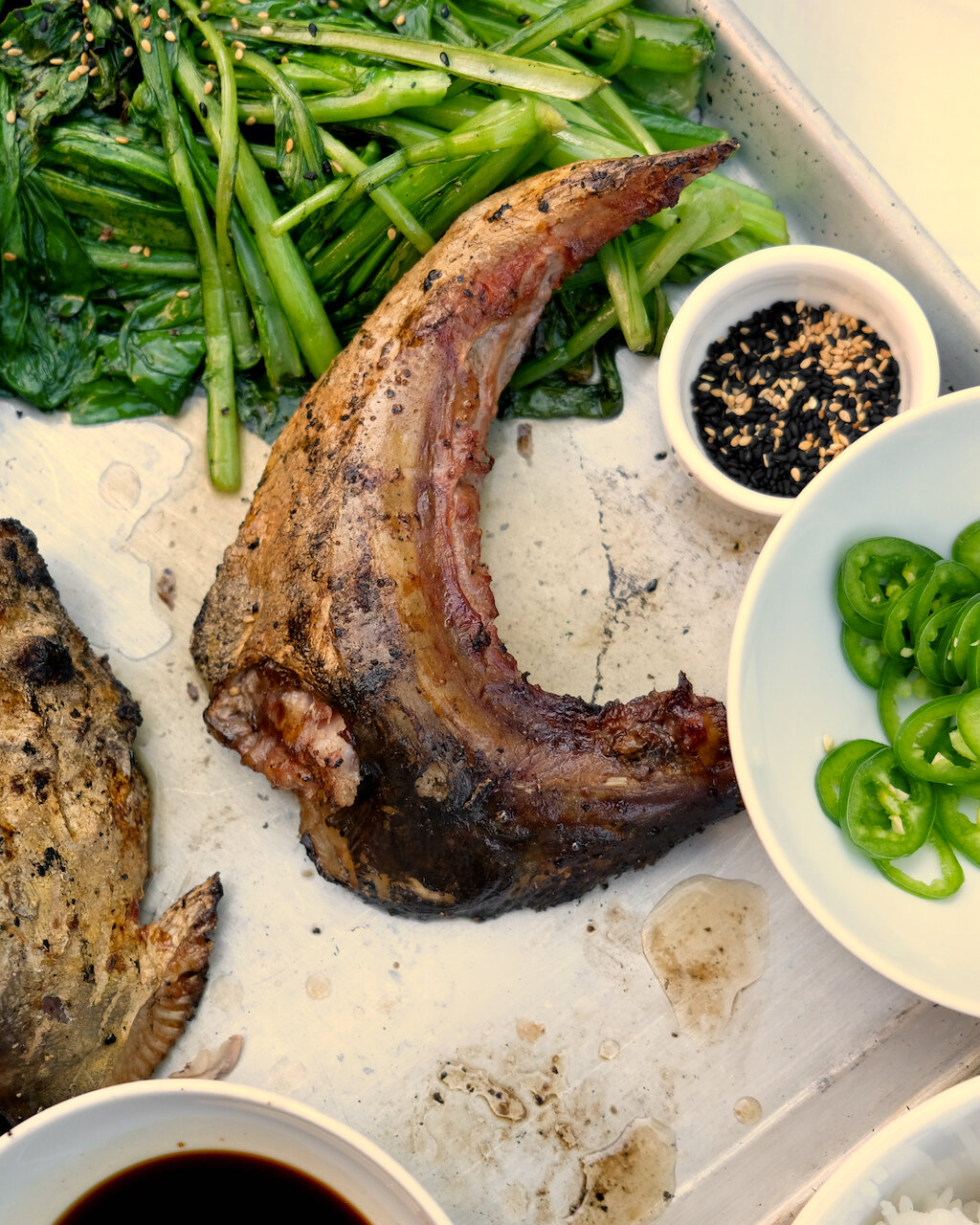Snakehead Caviar
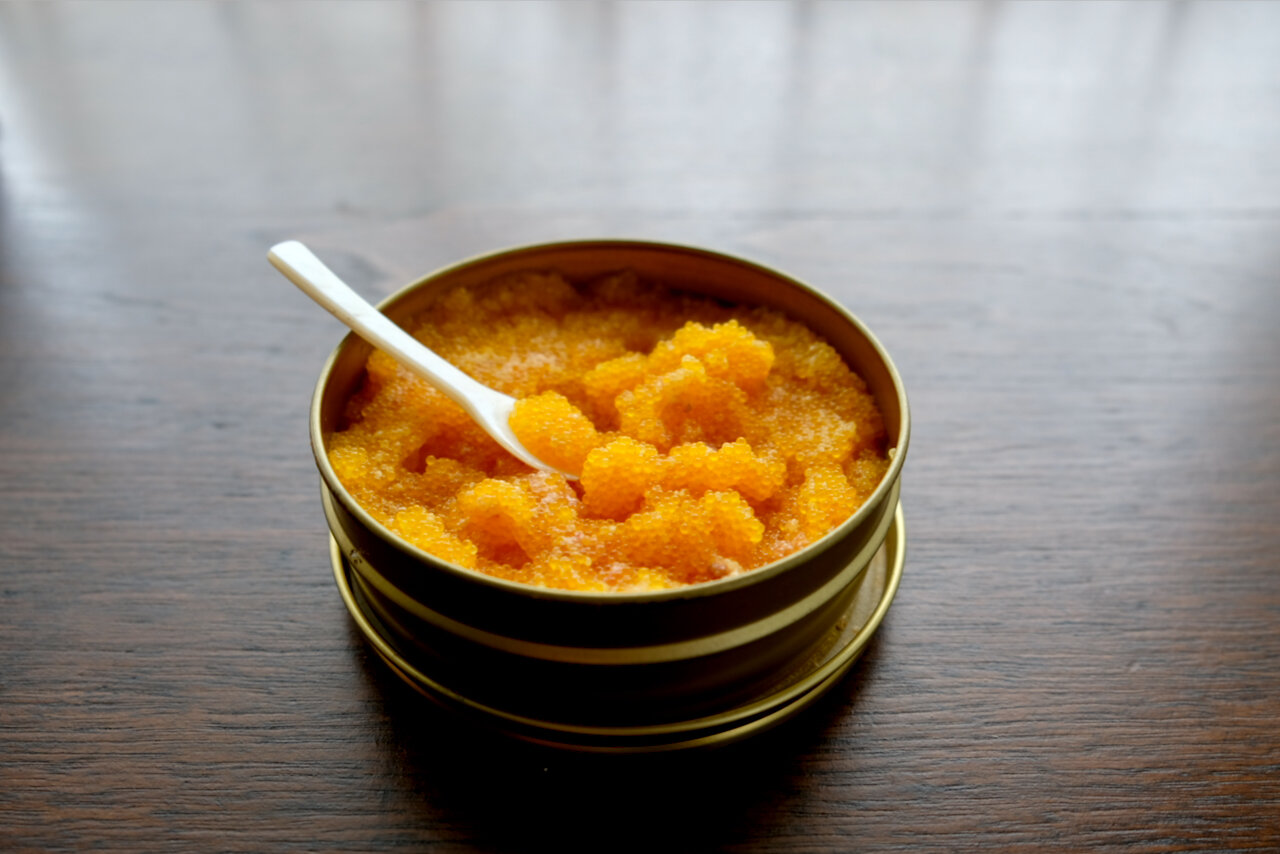
I’m not going to lie- Rachel and I love caviar. It's a luxury food, no doubt about it. We used to buy a big tin of caviar to celebrate holidays and milestones (one of the benefits of being able to order things at cost from the restaurant) and now we make our own whenever we have a chance. It’s easy, and we like taking a commonly trashed resource and turning it into a luxury item.
We've tried this method with various roes, but snakehead so far has been our favorite. We look forward to this every year. The fine texture, color and richness of snakehead roe is exceptional. The roe is small but not too grainy, with a pleasant “pop” and has a deep, glowing orange color. Flavor-wise, it is mildly briny and not fishy at all, with an eggy richness that you only find in good fish roe. The roe sacs are a nice size for curing- one or two will make enough for an appetizer for a group, or a meal for one or two. If you’ve got a nice bottle of not-too-oaky chardonnay on hand, pop it. A slightly buttery, crisp white wine plays beautifully off the richness of the caviar.
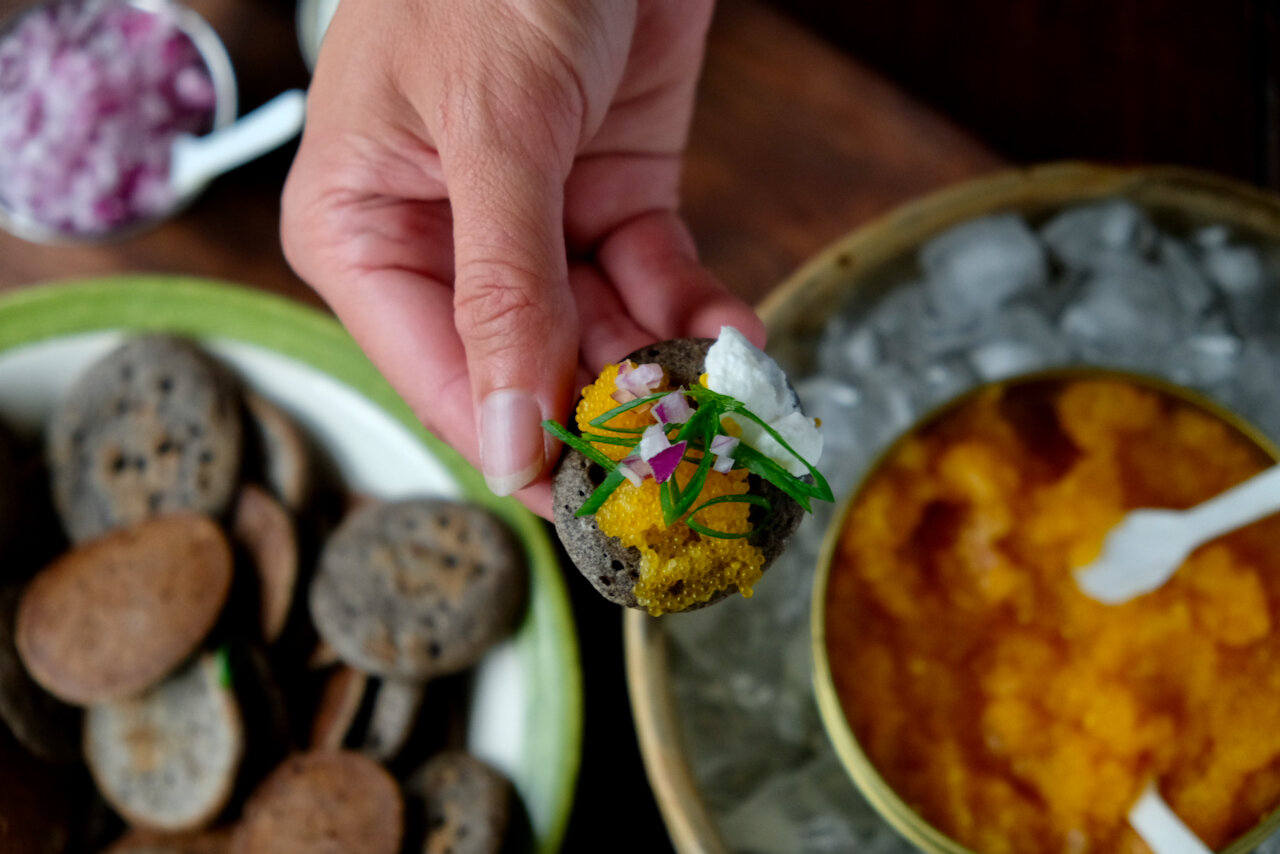
This is a simple process. Separate the eggs from the membrane, rinse them, and brine. The only tricky part is separating the eggs from the membrane without smashing too many. With some roe, splitting the membrane open and gently rubbing the eggs against a colander yields great results, especially with roe sacs that have lots of connective membrane throughout the sac. But with the snakehead roe, the eggs are kind of just clumped up in the sac, so we split the membrane and pinch the eggs between two fingers and gently pull them off.
After brining, we make a pile of blinis and feast like kings. This is “eating out of your pay grade” at its finest.

Snakehead Caviar
Prep time: 30 minutes
For the blinis, we used this recipe. We like it because it doesn’t call for yeast and comes together quickly. For easy, pretty blinis, put your blini mix into a squeeze bottle and use it to drop perfect, half-dollar sized dollops of batter into the pan.
Feel free to experiment with other fish roes. The brine time will increase with the size of the roe- big eggs will need more time than small ones.
Ingredients:
65 g salt
500 g water
Fish roe
Method:

Dissolve the salt into the water and chill until ice cold.
Separate the roe from the membrane into a bowl. You will break some eggs, it's unavoidable.
Rinse the roe in cold water and strain well.
Submerge the roe into the cold salt brine for 5-15 minutes. The brine time will depend on the size of the roe and your personal preference. Taste test every minute or so until they have the amount of brininess you want. We like the snakehead and similarly sized roe at 8-9 minutes.
Once the desired level of brininess is achieved, strain well and store cold. We put ours into a jar with a lid, and put that jar in a bowl of ice in the refrigerator. This caviar won’t keep long, so you’ll want to eat it within a day or two.
Classic fixings would include sour cream, chives, crushed hard boiled egg, onions or shallots, and blinis. We like to make a heap of buckwheat blinis, and serve it with a little bit of labneh and some scallions.
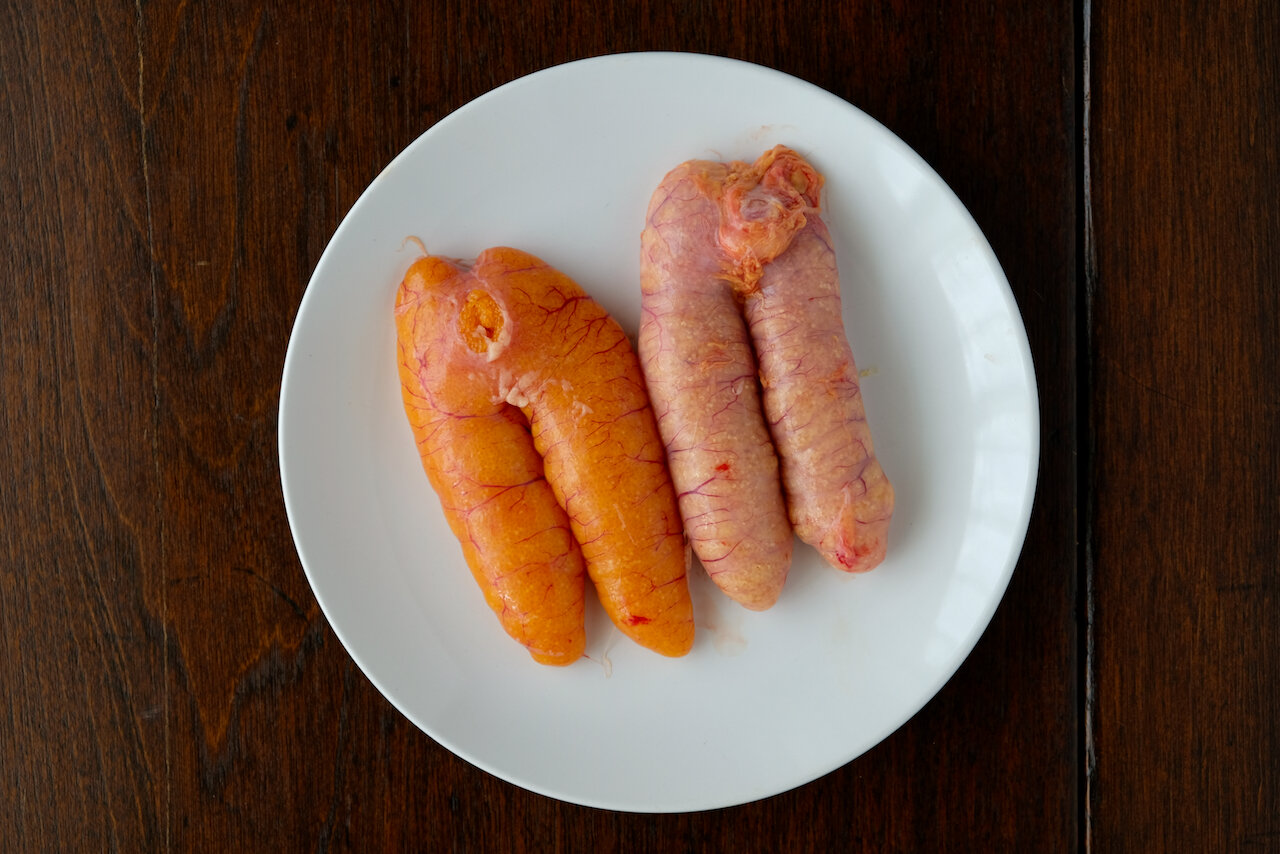
Depending on how close the fish is to spawning, you’ll see variations in color. The darker the roe, the riper.
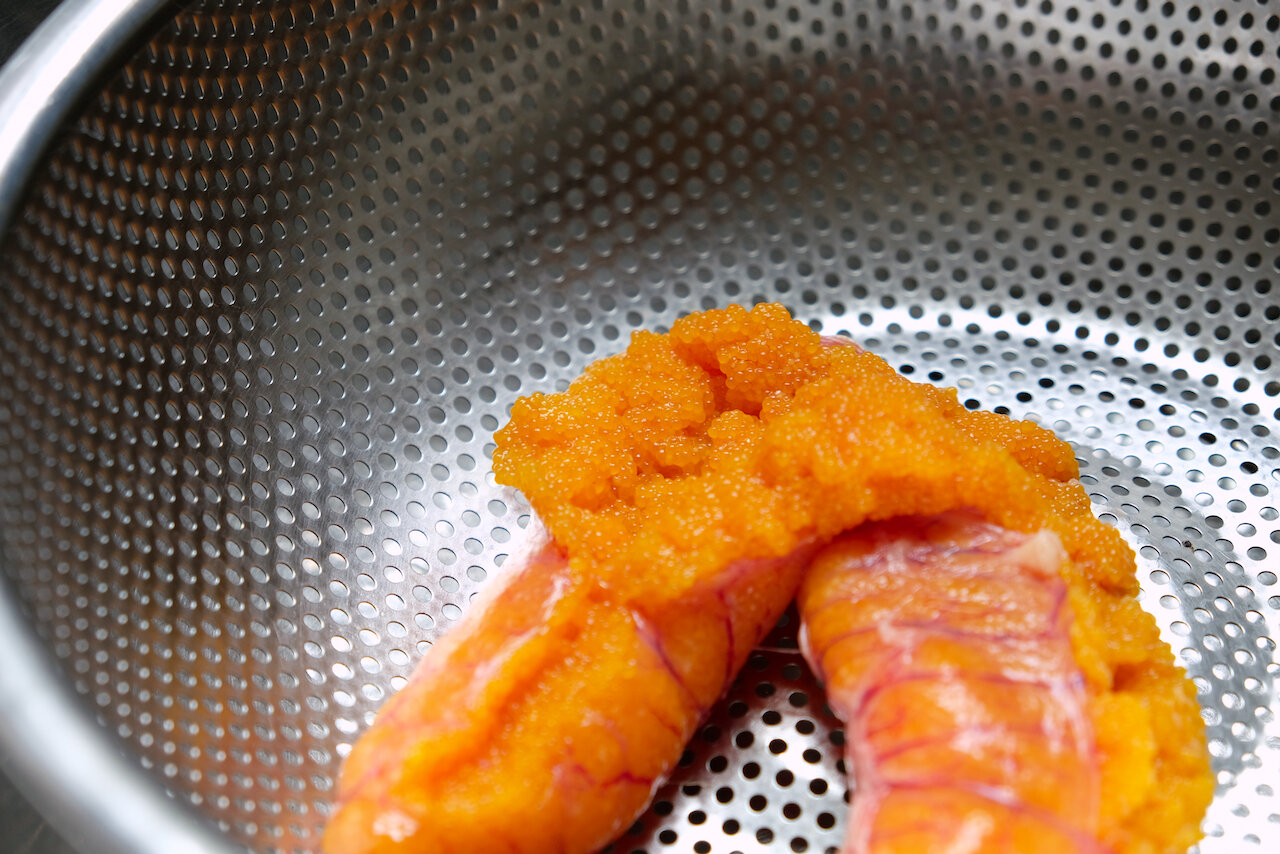
Gently tug at the membrane to tear open and separate the eggs from it
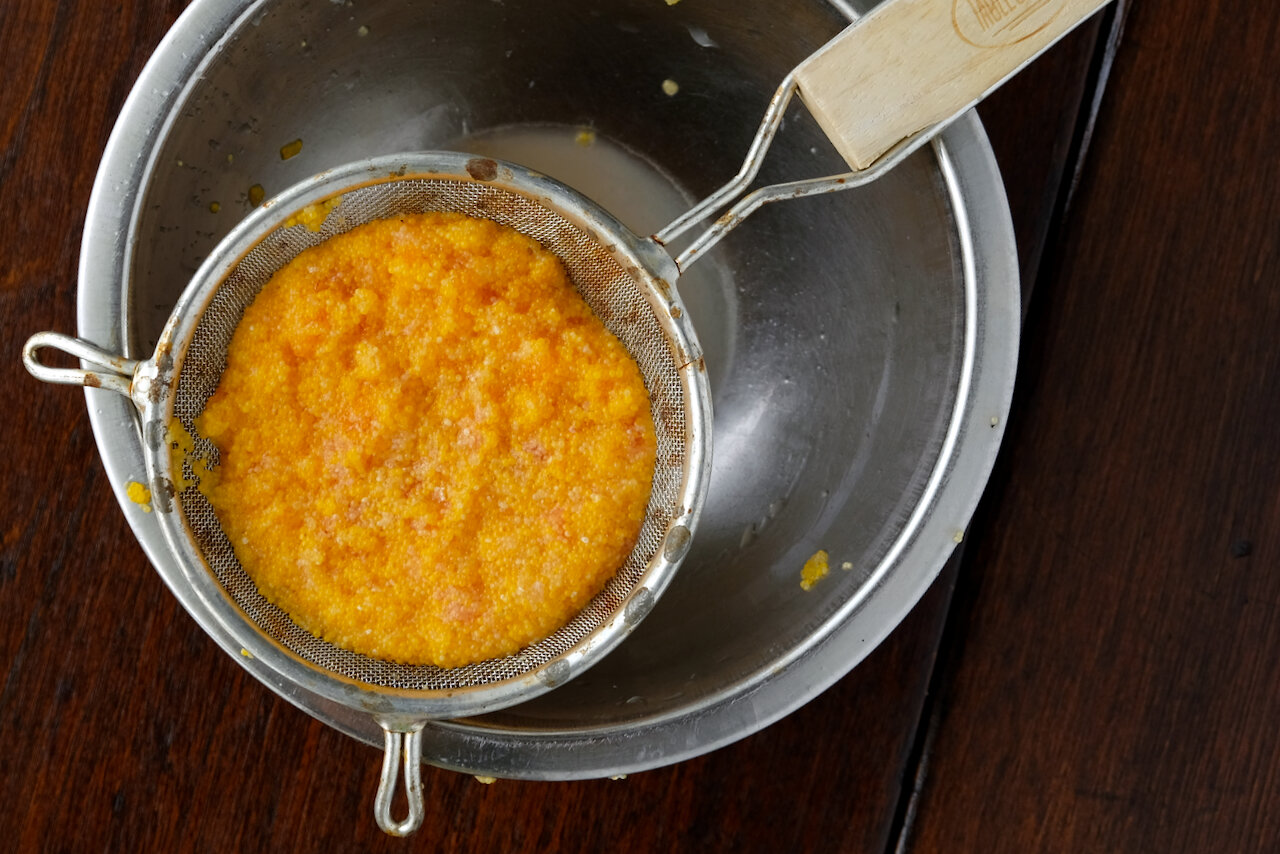
In a fine sieve, rinse the eggs under cold water
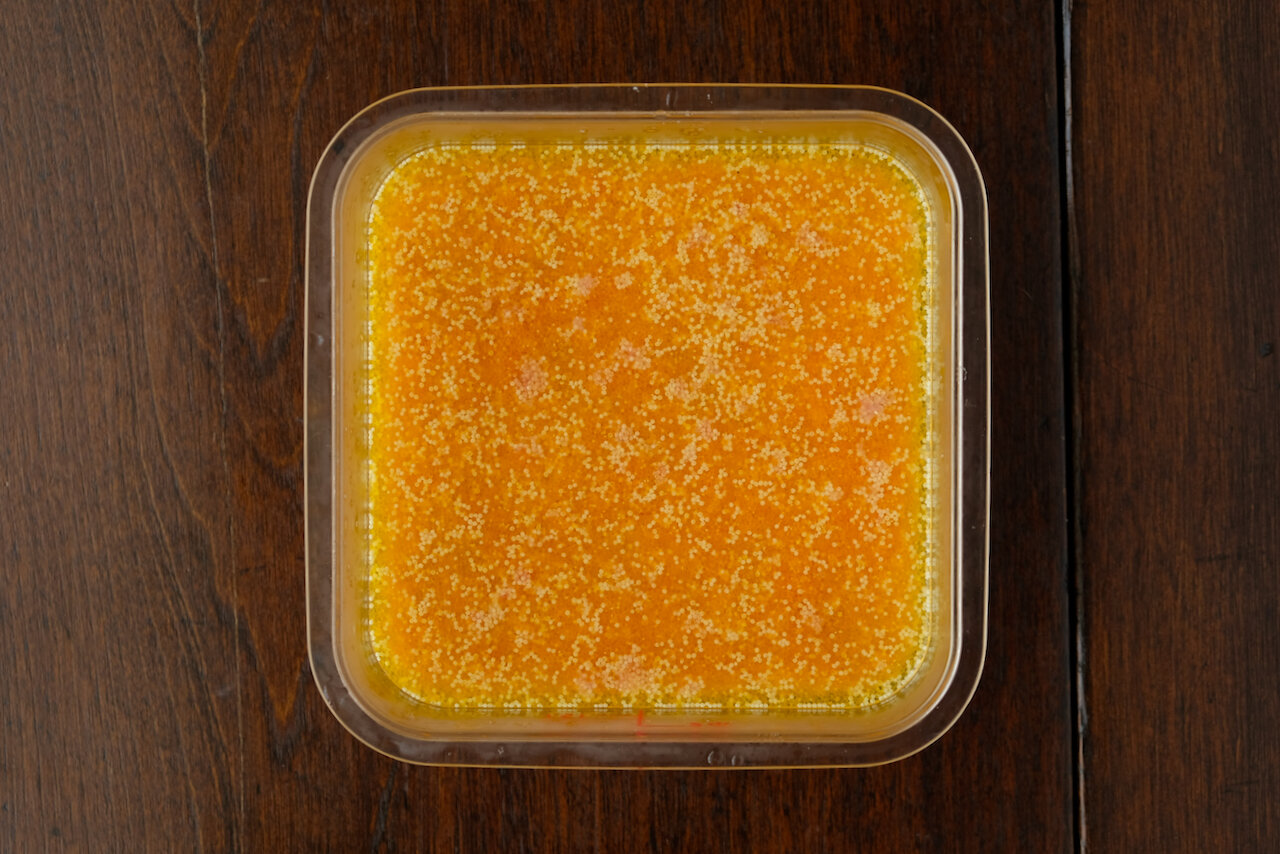
Allow eggs to brine in cold, salty water for around 8 minutes. Taste them as you go to make sure they are to your liking
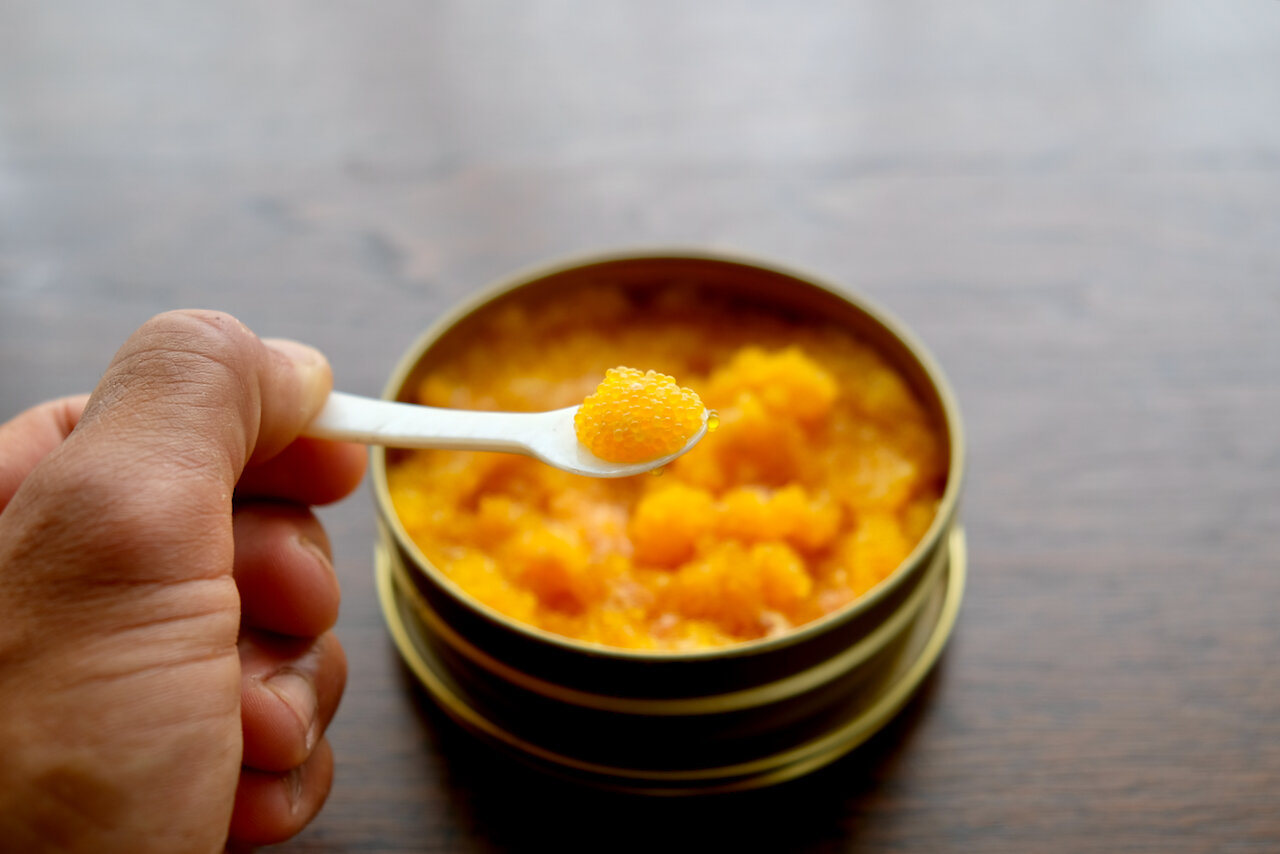
Strain the brine from the caviar and pack it into a tin or small jar. Serve with blinis, sour cream, and chives



